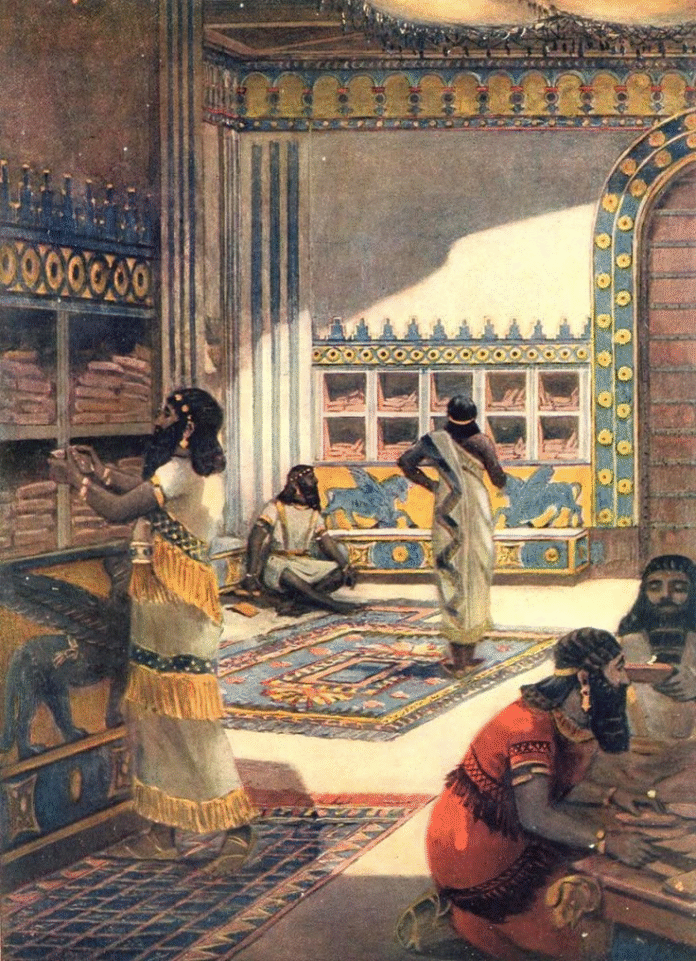Throughout history, libraries have been more than collections of books—they have been the guardians of human knowledge, culture, and memory. From clay tablets and scrolls to digital archives, libraries have preserved the achievements, struggles, and wisdom of civilizations. Without them, much of humanity’s progress in philosophy, science, literature, and governance might have been lost. The story of libraries is, in many ways, the story of human civilization itself.
The Ancient Beginnings
The earliest known library belonged to the Sumerians of Mesopotamia, around 2500 BCE, who inscribed records on clay tablets. The Library of Ashurbanipal in Nineveh (7th century BCE) is considered one of the first systematically organized collections. Containing thousands of cuneiform tablets on history, law, medicine, and astronomy, it offered a window into the intellectual world of ancient Mesopotamia. These early efforts ensured that crucial knowledge survived long after the fall of their creators.
The Legendary Library of Alexandria
No discussion of libraries is complete without mentioning the Library of Alexandria in Egypt, established in the 3rd century BCE. It aspired to collect all the knowledge of the ancient world, from Greek philosophy to Indian medicine and Egyptian mathematics. Scholars from across civilizations gathered here to study and share ideas. Although its destruction remains one of history’s greatest tragedies, its very vision symbolizes humanity’s quest to preserve and expand knowledge.
Buddhist and Monastic Libraries
In India, Buddhist monasteries such as Nalanda (5th century CE) and Takshashila served as both centers of learning and repositories of texts. Nalanda housed thousands of manuscripts on philosophy, logic, medicine, and art, attracting students from China, Tibet, and beyond. Similarly, in medieval Europe, monasteries played a crucial role in preserving classical texts during the so-called “Dark Ages.” Monks painstakingly copied manuscripts, ensuring that works of Aristotle, Plato, and early Christian theologians survived.
Islamic Golden Age and Knowledge Hubs
Between the 8th and 13th centuries, the Islamic world saw a flourishing of libraries and learning centers. The House of Wisdom in Baghdad became a hub where Greek, Persian, Indian, and Arabic texts were translated, studied, and expanded upon. Libraries in cities like Córdoba and Cairo preserved medical, astronomical, and mathematical texts that would later influence the European Renaissance. These institutions kept alive the intellectual traditions of earlier civilizations while nurturing new discoveries.
Renaissance and Public Libraries
With the invention of the printing press in the 15th century, knowledge became more accessible, and libraries began to grow rapidly. The Renaissance revived classical learning, much of it preserved in earlier libraries. Public libraries gradually emerged, breaking the monopoly of kings, priests, and scholars over knowledge. The British Library, founded in 1753, and the Library of Congress in the United States are examples of institutions that democratized access to information.
Libraries in the Modern Era
In modern times, libraries have continued to serve as custodians of knowledge, adapting to new technologies. The National Library of India in Kolkata and similar institutions worldwide collect and preserve manuscripts, rare books, and historical records. Today, digital libraries such as Project Gutenberg and the Internet Archive are expanding access globally, ensuring that even fragile or rare works are preserved and shared with future generations.
Libraries are not just buildings filled with books; they are living monuments to human civilization. They preserved wisdom during wars, safeguarded cultures during colonization, and nurtured revolutions in science and thought. At every stage of history, libraries have protected humanity from forgetting its own achievements. In an age of information overload, their role as curators of knowledge is more vital than ever. By preserving the past and providing access to ideas, libraries continue to shape the future of human civilization.



